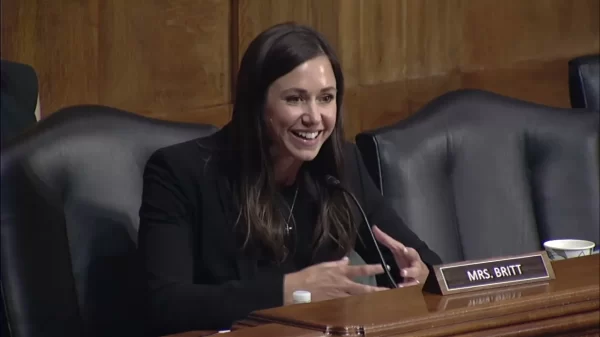On the phone, Mark Isley is in tears — his words barely understandable, coming out in short screeches. Isley’s tears are not really from sadness, and certainly not relief or joy. They are more a combination of worry, of anger and of teeth-gritting frustration. The kind of frustration that sucks you in and consumes your entire existence. The kind of frustration shared by a husband and wife, when some event — or some series of events, in the case of Mark Isley — has derailed your life, taken your perfect, peaceful existence and turned it upside down in a dumpster.
That is why Mark Isley is crying, and why his tears are justified. Because what’s happened to Isley is not fair.
In fact, it is the most wrong thing that can happen: A man who was trying to do the right things, the honorable things, has been treated as the villain and punished as if he were the one violating rules and laws. And the system in place to stop such a thing has failed, and the people who should stand up for him — or, at the very least, stand for the rule of law — have turned a blind eye and a deaf ear. Who wouldn’t be frustrated by that?
“It hurts you when a system and a group of people who you’ve put your trust in turns on you and fails to protect you,” Isley said. “I am hurt by what’s happened. Actually, I’m more than that — I’m devastated. My life has been ruined by what’s happened, and I haven’t done the first thing wrong. The system we have should protect people like me. Instead, it’s done the opposite.”
Isley, once upon a time in his life, was a school superintendent in Boaz. Then he was the director of human resources for the Limestone County school system. Today, he is unemployed — effectively blackballed within the public school system in this state — and only an investigation by the Alabama Department of Labor has provided him unemployment compensation and COBRA insurance, both of which were improperly (and possibly illegally) denied him.
All of this for the sins of not looking the other way. Not letting things go. Not letting the good ol’ boys run the show.
“Mark Isley doesn’t have a bad bone in his body,” said one of Isley’s former bosses, who asked not to be identified. “He’s as good as they come, and you can trust him to do the right thing, even if it’s not popular — even if it costs him his job and everything. That’s why he’s in this predicament, and it’s a damn shame.”
THE TROUBLE IN BOAZ
To understand why Isley is unemployed currently, it’s probably best to start at the beginning, back when the craziness started in Boaz in 2015. Isley was in his third year as superintendent of the system and in his fifth year in Boaz. He and his wife Belinda were happy and content. They liked the town, had found a church home at First Baptist of Boaz and loved the kids and school system.
And the school system loved him. Isley was given a state award for innovation, received high marks from his teachers and was generally considered a very popular, hard-working and devoted superintendent. In interviews with local media the first couple of years after he was promoted to superintendent in 2012, Boaz school board members and other community leaders raved about Isley and the job he was doing.
Two things blew it all up: Isley said he caught his chief financial officer, Brian Bishop, missing dozens of days of work without taking proper leave time. Then a tape of a popular basketball coach, Anthony Clark, striking a player landed on his desk.
Of course, it wasn’t simply those things that created the strife for Isley, because those things are not hard issues to deal with — not from a purely factual standpoint. The strife occurred when small-town life intervened in the personnel matters of a school system.
A bulk of the town attends the same church, First Baptist Boaz, and church activities are the primary source of social activities and business relationships. And when the CFO accused of stealing off days and the basketball coach accused of hitting a player are serving on the deacon board with the school board president and two more board members as members of the church — along with Isley — then, well, things that should be simple get really complicated.
That’s not to say that such personal relationships should complicate things, mind you, but just the same, they often do. And in Isley’s case, they seemed to matter a lot.

A bulk of the town attends the same church, First Baptist Boaz, and church activities are the primary source of social activities and business relationships. (VIA GOOGLE EARTH)
In emails obtained by APR, Isley repeatedly advises his school board president, Rick Thompson, that Bishop is missing numerous days and failing to report them. In one documented week, Isley writes to Thompson that Bishop has worked just one day of the five-day workweek, and yet, Bishop recorded zero absences.
In total, Isley provided the Boaz board — and also informed numerous people at the Alabama State Department of Education — with evidence that Bishop had missed more than a thousand days of work without taking a personal leave or sick day to account for the absences.
For his troubles, Isley was chastised by Thompson. In one email, Thompson told Isley that he doesn’t like that Isley is sharing information about Bishop with another board member, Tim Whitt, and he ordered Isley to “leave (Whitt) out of any discussions” concerning Bishop.
“There was no doubt whatsoever that (Bishop) was missing the days and that Mark was right about it,” said a former Boaz school board member, who asked not to be identified out of fear of retaliation. “But some people let their personal relationships cloud their judgment. That’s what it boils down to.”
Bishop ended up leaving Boaz for a different school system three months later, before a formal hearing occurred. Asked specifically about the allegations against Bishop and the numerous reports from Isley — all without any action taken against Bishop — ALSDE declined to comment.
Both Isley and Thompson were unhappy with how the entire situation played out, and the friction between the two only grew.
In December 2015, as he was still navigating the Bishop ordeal, Isley learned that there were allegations of physical abuse of a player against head basketball coach Anthony Clark — and that there was video evidence. After reviewing the video, Isley determined that Clark should be fired.
A source who has viewed the video, which was captured on a school security camera, told APR that Clark could be seen punching the player three times with a closed fist. The incident occurred at a practice and in front of other students. It also was not the first time that Clark had been accused of physically assaulting a player. But it was the first time an incident was caught on tape.
(Isley did not provide APR with any documents or materials concerning Boaz schools, and he declined to speak about the details of his departure or any other incidents related to his employment, honoring the terms of the non-disclosure agreement he signed as part of his settlement with Boaz.)
After reviewing the video, Isley wrote to Thompson to inform the board president of the allegations against Clark and to let him know that an investigation was underway. A few days later, Isley wrote Thompson again to inform him that after conducting the investigation, and hearing allegations that included inappropriate relationships with female students, Isley was planning to call an emergency board meeting to discuss Clark’s future at the school.
This set off a firestorm — both within the Boaz school system and around the town. Immediately, Isley received an email response from Thompson, who warned that “You do NOT have the votes to do this.” That email, and a later phone call with Thompson, was followed by a text message a few days later from Boaz First Baptist pastor Aaron Johnson.
In that message, Johnson seemingly warns Isley to stop the investigation into his deacon chairman, blames the whole situation on a few malcontents and indicates that his opinion of Isley could be lessened if things go the wrong way.
“(Clark) is a good man and is much loved and respected here at FBC,” Johnson wrote. “I hope my respect for each of you will not be changed by a handful of malcontents. I’m sure nobody has told you about the last coach who was a deacon here and the superintendent (who) fired him.”
Isley took the message as a clear threat, since the previous superintendent referenced by Johnson was forced out by the board after attempting to fire a popular high school coach. Johnson and church members inserted themselves into that situation, as well.
Johnson, however, insists the message carried no threat and was sent in an effort to help Isley avoid a potential problem by firing a popular coach and church member.
“I was just trying to head off a big fight in my church, in my town,” Johnson said in an interview last month. “I was also helping a friend. I would have done the same for Mark Isley. In fact, I thought I was helping Mark.”
With the church in the middle of it, and with Facebook messages and posts flying, Isley’s attempt to fire Clark became a civil war in Boaz. Isley said numerous church members came to his office and called — some with threats — and it turned what should have been an internal, simple matter into a crisis that would ultimately cost him his job.
Johnson, who began the interview with APR by calling Isley a “nut,” admitted that he pushed for his church members to stand up for Clark, but he denied encouraging anyone to go see Isley or to make threats. Later in the interview, he called Isley “a good man” and said he wished things had worked out differently.
Quite a few people in Boaz likely have that wish. The three FBC members on the school board — Rick Thompson, Rhonda Smith and Jeff Roberts — blocked Isley’s attempts to fire Clark in early 2016. But with Isley still pushing to place the coach on administrative leave, Clark resigned and accepted another job at Andalusia. In an email with board members, Thompson called Clark’s departure a “sad day.”
Four years later, a former school board member referred to Clark’s departure as “the day Boaz dodged a bullet.”
{{CODE1}}
In September 2019, a female student from Andalusia filed a federal lawsuit against the Andalusia School Board and superintendent and high school principal, alleging that she had been the victim in a long term sexual relationship with Clark — a relationship that began when she was just 17 years old and a high school junior, the year after Clark left Boaz.
The lawsuit goes into explicit detail of Clark’s many, many sexual encounters with the minor, including encounters on school grounds and at Clark’s home. It alleged that school officials knew about the relationship but never reported it, and it alleges that the school board and others were aware of Clark’s long history of abuse and sexual assault of students at previous high schools.
“After that all came out, a lot of us found out some things we wish we had known a lot sooner,” said a former Boaz school board member, who also asked to remain anonymous. “There are a lot of people in this town who owe Mark Isley an apology. He stood up and did the unpopular thing and took a tremendous amount of grief for it from people who were supposed to be his friends. And I’m ashamed to say that I’m one of them.”
The revelations about Clark, who has not been charged by law enforcement, have not swayed Johnson, however. Asked if he regrets the way Isley was treated by him and his church members after learning of Clark’s past, the Andalusia allegations and about the video of Clark striking a player, Johnson said it didn’t change anything for him.
“I was trying to help a friend and nothing more,” he said. “I don’t have any power here. People just asked me for my support as a friend, and I made a few calls. Nothing more.”
The Clark incident, coming on the heels of the issues with Bishop’s leave, was the end for Isley’s tenure at Boaz. Isley’s relationship with Thompson was damaged beyond repair, according to two sources familiar with the situation. And then, things got weird.
With tensions high between Isley and Thompson following Clark’s departure, Isley and Boaz principal Gary Minnick selected Arab coach Justin Jonus to take over. Jonus seemed to be a popular choice — he lived in Boaz, was well known and well liked around town and was a member at First Baptist. According to three sources familiar with the process, Jonus was assured that the job was his.
However, shortly before the board meeting at which Jonus’s hire was going to be approved, Thompson showed board members an email between Isley and Jonus that allegedly showed Isley promising Jonus a massive salary, according to four people familiar with the situation. Those four people include two former board members, a longtime Boaz school administrator and a former ALSDE official who was familiar with the subsequent state investigation into the matter.
According to multiple sources, an investigation would later show that the email was a fake — or, to be more accurate, someone had gained access to Isley’s school email and changed the amount he was offering Jonus. A copy of the doctored email was then provided to Thompson just prior to the meeting.
“It was a flat-out setup,” said one of the sources. “This is not a secret at this point. It has been proven. The state did an investigation of this.”
An ALSDE spokesperson did not respond to my questions about this investigation.
However, the scheme got the desired results. The board voted 3-2 against hiring Jonus, who was in attendance and ready to shake hands. Following the meeting, Jonus stood, screamed “What!” and left.
A few weeks later, Isley would follow him. The board voted to buy out Isley’s recently-renewed contract — a decision that would cost the tiny school district more than $200,000 when it was all over. Isley’s tenure as Boaz superintendent, a position that he described as his dream job, was over.
Isley pleaded with officials at ALSDE to intervene, and provided numerous people with documentation for why he sought to terminate both Bishop and Clark. I asked an ALSDE spokesperson to explain why no one intervened in the matter or seemingly made an effort to address Isley’s concerns about both employees, and ALSDE again said the matters were part of an ongoing investigation and declined comment.
It would not be the last time Isley was left hanging.

After more than a year working as a professor at Alabama A&M University, Isley accepted a job in 2019 as human resource director at Limestone County Schools. (VIA GOOGLE EARTH)
THE TROUBLE IN LIMESTONE
After more than a year working as a professor at Alabama A&M University, Isley accepted a job in 2019 as human resource director at Limestone County Schools. In September 2019, Isley, along with then-superintendent Tom Sisk and another administrator, were called into an unannounced meeting with an FBI agent and an investigator from the U.S. Department of Education. Their focus: the system’s virtual schools and a lot of missing money.
For Isley, the questions they were asking made a lot of troubling pieces fall into place for him, and, he thought, it provided him an outlet to express concerns that had so far gone unaddressed by local and state officials. Isley had documented, and expressed repeated concerns to his bosses and state leadership, about a number of issues within the Limestone system, including troubling hiring practices at the virtual school, Alabama Connections.
Once the meeting was over at the school, Isley walked the two investigators out and chatted with them. Then he went to lunch with them, where, for more than two hours, he broke down his concerns, explained processes and agreed to provide the FBI and DOE with any information they needed.
“I didn’t tell them anything that I hadn’t already told people above me,” Isley said. “I’m sorry, but I’m not the person who will cover up things. If you do things the right way, you don’t have anything to worry about.”
This series of events led to my first contact with Isley — an email that showed up in my inbox and detailed how and why he was forced to resign as the H.R. director in Limestone County. Included among the reasons was the fact that he reported to ALSDE, the U.S. Department of Education and the FBI a number of problems within the district’s virtual schools and that he reported violations of federal laws to the state.
Isley’s interaction with FBI and DOE investigators was of particular interest to me, since I had been working for weeks to determine why the FBI was investigating virtual schools around the state. Back in June, the Athens City superintendent’s home was raided by FBI agents, and there were quick rumors that the raid involved the city’s virtual school.
{{CODE2}}
Isley also had other information and documentation of serious problems within the district’s virtual schools, including that the district was failing to follow individual education plans, known as IEPs, for learning disabled students and that the state’s largest virtual school was all but unmonitored by local school officials. Isley also provided information about improper hiring practices that were in violation of Americans With Disabilities Act guidelines, placing millions of dollars in federal money at risk. He also made claims of outright and shocking racism, including a school board member instructing him not to hire “any (n-word)” for principal positions.
(Isley made the same racism claim in a lawsuit against the school district, which he filed after he was placed on leave. The school board member, president Bret McGill, denied the claims. Isley told me, however, that he turned over to the FBI a recording of McGill making the comment.)
To prove his claims, Isley provided a series of emails to APR in which he asked a state department of education official to determine whether an improper hire had been made for an elementary arts teacher position. The official, Jayne Meyer, told Isley in a response that the specific teacher in question — whose name is obscured in the email — would be hired “out of field” because she lacked the proper education and experience combination required for the position. Such a hire is a violation of local board and state policy and could place the system in jeopardy of losing Title I funds.
To date, no one has provided any information to dispute Isley’s claims of improper hiring practices. No one at ALSDE disputed his claims or seemingly took any action to correct the hires or protect Isley.
Instead, ALSDE officials sat idly by as Isley was pushed out at Limestone County in a ruthless, callous forced resignation that came just after the start of the second semester last school year. Without reason, Isley was placed on administrative leave.
“If you want to know if Mark was right, just look at the way they forced him out in the middle of the year with no evidence,” said Isley’s attorney, Shane Sears. “I think that says everything. They couldn’t even give us a reason for placing him on leave. They just had to get him out of there and shut him up.”
Limestone attorneys argued in a letter to Isley’s attorney that school officials were not required to provide a reason. Instead, they wanted Isley to submit a statement explaining why he shouldn’t be placed on leave for an unknown cause. In addition to that, Limestone County officials apparently leaked the personnel move to the local media and issued statements indicating that Isley was the subject of an investigation.
There was, in fact, an investigation. But that investigation, conducted by interim superintendent Mike Owens, appears to have started after Isley was placed on leave. The investigation’s goal seems to have been to find any cause for which Isley could be placed on administrative leave and ultimately fired. Owens submitted a report to ALSDE to justify placing Isley on leave and for recommending his termination, a copy of which was obtained by APR.
The report showed every piece of evidence submitted by Owens was gathered after Isley was placed on leave. And those allegations, well, they didn’t exactly rise to the level of fireable offenses.
They included a dispute between Isley and the owner of a thrift store over where he left Christmas decorations as donations; a complaint by a teacher from a year earlier that Isley didn’t properly address her complaints of being bullied by another teacher; an allegation that Isley didn’t attend a conference in Montgomery and provided different reasons for why, but ultimately used personal leave days to cover his absences; and a dispute over whether Isley properly recorded leave days — a dispute that was based entirely on incorrect information in a memo.
“I did nothing wrong, and I can prove that every allegation they’ve made was utter nonsense,” Isley said. “I am willing to sit in the town square in Athens and take a polygraph test about all of it. I have facts and evidence to support everything I’ve said and to prove them wrong on everything they’ve accused me of.”
It has not mattered in the least.
THE AFTERMATH
Now, months later, Isley is out of work and can’t get hired for positions he’s more than qualified to hold, because he keeps getting undercut during the hiring process. At least four times now, he’s been a step away from getting a job, only to have an apologetic superintendent call to say that their board has issues or the board got a call from someone.
Even when Isley turned to his friends and asked for help, the results have been the same.
“The guy’s been blackballed — it’s obvious,” said the executive director of an entity involved with Alabama public education. “I talked with two different superintendents and it never went anywhere, and they couldn’t give me good reasons why he wasn’t hired for jobs that he was qualified to get. It’s a real shame, because he’s a good man.”
Now, Isley is left in a position he never would have dreamed of a few years ago: unemployed, scraping by for money, trying to cash in favors to get interviews for jobs he should walk into — all while he’s a year away from being vested in the state retirement system.
The stress and embarrassment have taken a toll on Isley, and on his wife. And his tormentors continue to pile it on. Last month, he learned that Limestone County officials never submitted his unemployment paperwork to the Department of Labor, which prevented him from receiving unemployment compensation and COBRA insurance.
Last week, after Isley reached out to the governor’s office for help, a Department of Labor investigator called. Isley got thousands of dollars in back pay within days, and he said the investigator told him that Limestone officials have repeatedly refused to submit the required paperwork, potentially committing a felony.
Isley said he was told that an official investigation is underway and that his insurance has been restored. {{CODE3}}
That all provides at least some temporary relief for the Isleys, but it does little to address the larger problem — that an administrator who has never been accused of doing anything wrong, who has received awards for leadership and innovation, could be shoved out of jobs, humiliated and blackballed, as the State Department of Education looks on, for the sins of holding people accountable and doing the right things.
“They’ve completely and utterly broken me, which I think was their goal,” Isley said. “I can’t sleep. I can’t eat. My life has been turned upside down. And I was right about everything I did , and can prove it. But no one cares. They care about their politics and their friends and protecting images — not doing what’s right for the kids or following the law. If I can get one more year in the system, I’ll retire and move on, because I’ve learned that it’s not a place for people like me.”




















































